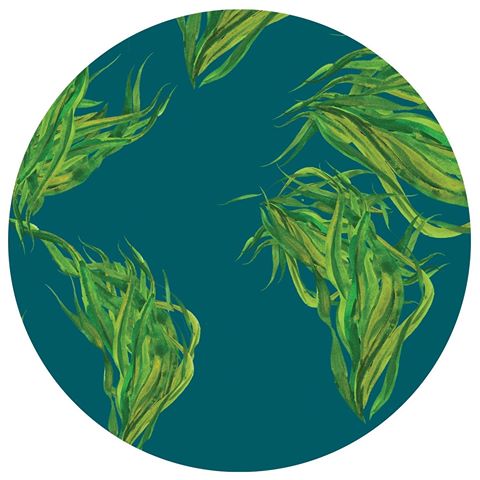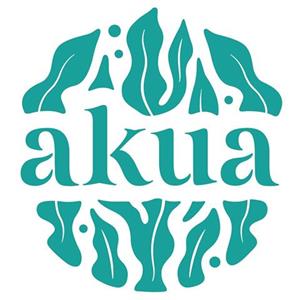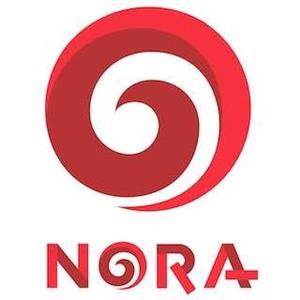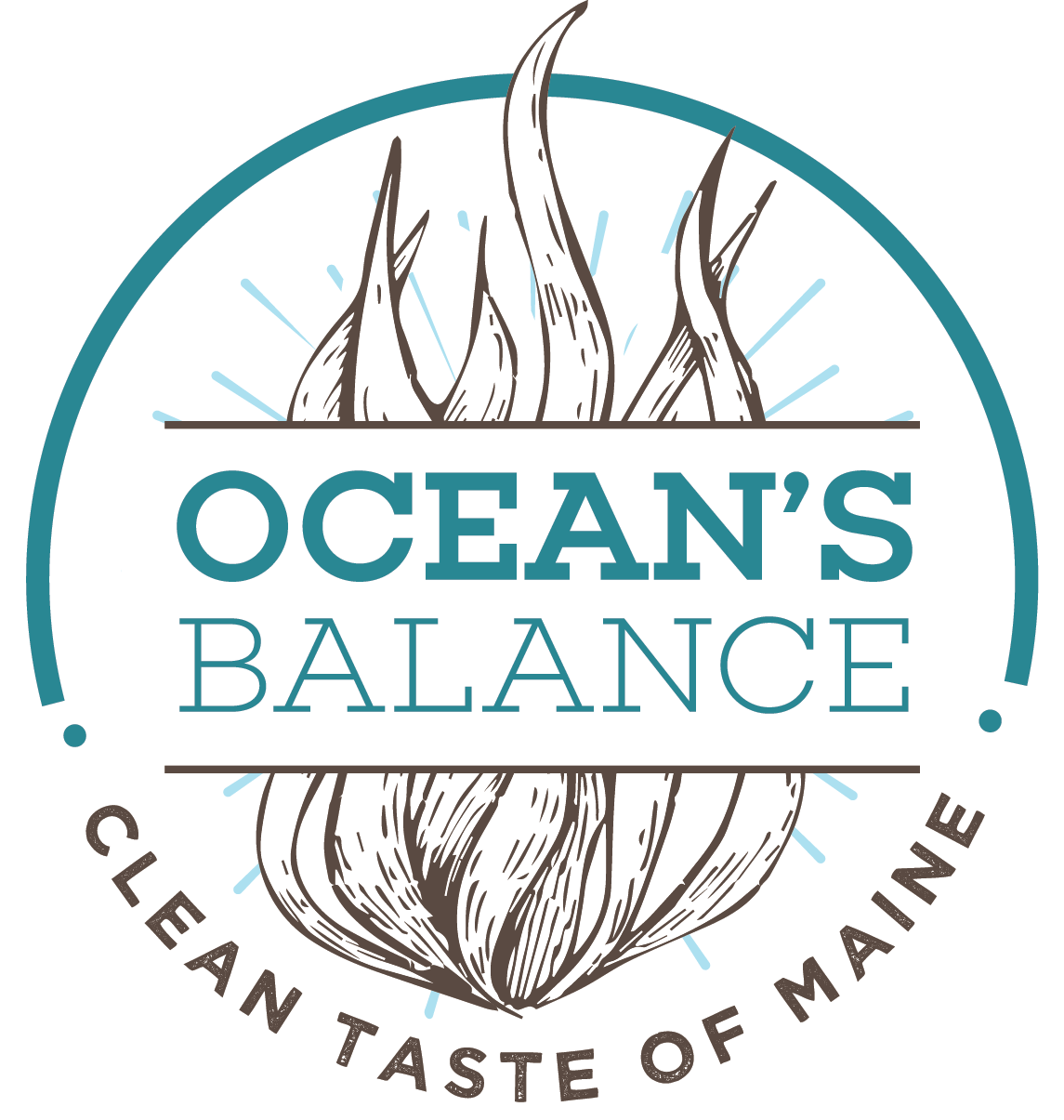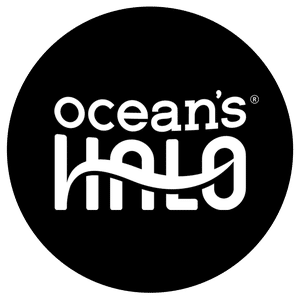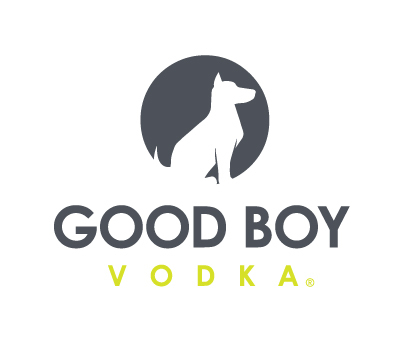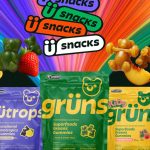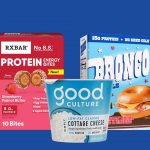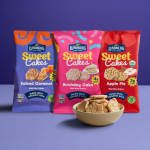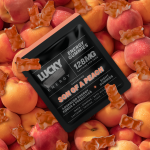Expo West Preview: Seaweed Product Makers Target Approachability, Sustainability
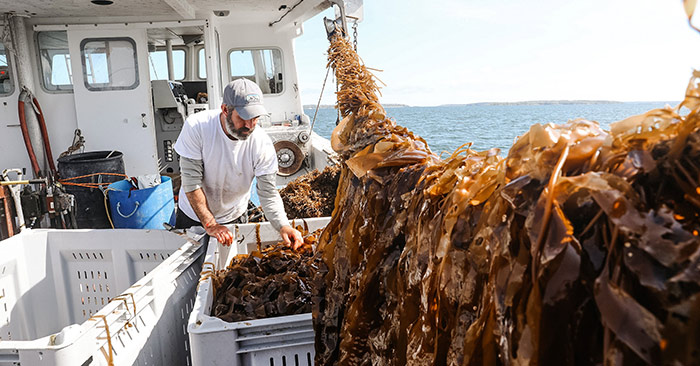
Outside of its traditional domain in Asia, seaweed is rapidly gaining popularity among CPG food brands and consumers alike in the United States for its multitude of positive attributes including the potential to help achieve carbon neutrality and mitigate deoxygenation and eutrophication. As the sea vegetable requires no arable land, irrigation or pesticides to grow and absorbs carbon, it is quickly being touted as a potentially game-changing ingredient.
The category recently experienced a boost from the new Coastal Seaweed Farm Act of 2023 introduced by U.S. representative Jared Huffman and U.S. representative Mary Peltola last week. The proposed bill would direct NOAA and the U.S. Department of Agriculture to produce a joint study evaluating the impacts of coastal seaweed farming. The report would be used to “issue regulation related to such farming and establish an Indigenous seaweed farming fund, and for other purposes.”
According to Phyconomy, a Belgian-based project tracking the emerging seaweed economy, investment deals nearly doubled between 2020 and 2022, growing 36% to $168 million.
“Seaweed represents an area of aquaculture with strong economic fundamentals and a positive footprint – the new requisites for strong and long term growth. Producing high quality food at lower cost to consumer and planet will benefit consumers, planet and investors alike,” said Katapult Ocean investment director Ross Brooks.
Those attributes have heightened the sea vegetable’s profile, and helped land it a top spot on several trend lists for this year. In October, Whole Foods Market highlighted kelp as one of its top food trend predictions for 2023. The grocer stated that as the sea vegetable can absorb carbon from the air in its original form, “kelp farming is more important than ever in the age of climate consciousness.” Meanwhile, The New York Times named marine flavors the flavor of the year, encouraging consumers to “embrace the brine.”
Ahead of Expo West later this week, here’s a look at what to expect in the seaweed category.
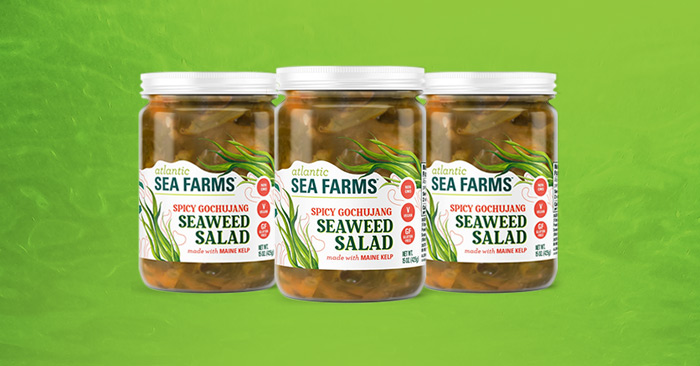
Farming Close to Home & Showcasing Sourcing Transparency
A majority of the edible seaweed on the market today is grown in Asia and imported to the United States, often rehydrated once it arrives from overseas. Several emerging brands are actively working to change this statistic by developing their own supply chains or partnering with networks of regenerative ocean farmers.
Founded in 2009, Biddeford, Maine-based Atlantic Sea Farms (N338) has been a pioneer in the seaweed farming industry in the United States, working alongside fishermen and other aquaculturists to create a thriving kelp community. In 2018, the company shifted from a science-based organization working to perfect the kelp cultivation process to a company focused on developing a commercial-scale fresh kelp market in the U.S.
Prior to 2018, a majority of the seaweed consumed in the U.S. had been imported as an extract or a dried form or purchased by consumers from small-scale operations, CMO Jesse Baines told NOSH earlier this year.
“I think there’s a really interesting story there on understanding where your seaweed comes from. I don’t think that’s been a really big part of the seaweed story today,” said ASF director of sales Zoë Croft.
“As consumers become much more health conscious and aware of these things, the source and the traceability of that supply is going to become increasingly important,” echoed Lisa Sebesta, an ASF board member and the founder of Sitari Capital.
Today, ASF has the largest kelp cultivation center in the western hemisphere where it propagates and incubates all of its own kelp seeds and distributes them to its partner farmers free of charge, according to Croft. The brand also works with its farmers on setting up their own lease applications through the Department of Marine Resources.
Atlantic Sea Farms currently produces 10 SKUs across four different grocery store departments, from Sea Veggie Burgers to Fermented Seaweed Salad to Kelp Cubes for smoothies. At Expo West, it will unveil its latest innovation: Spicy Gochujang Seaweed Salad, a spicier take on the brand’s existing seaweed salad that features kelp, kimchi juice and radish.
Also located in the Pine Tree State is Ocean’s Balance (N620), which, like ASF, partners with fisherwomen and men to help them start their own kelp farms, countercyclically to the fishing season and give them a means of diversifying their income.
Two of the biggest hurdles seaweed farming brands face, according to Ocean’s Balance CEO Mitchell Lench, include a lack of drying capacity and a prolonged wait time for farmers looking to receive a permit from the Division of Marine Resources.
The brand recently purchased what it claims is the first commercial-scale seaweed dryer in North America, which will enable it to dry the farmed kelp in April and May when it’s normally too cold and wet to dry outside.
“We’re opening it up to not only farmers who want some of their own product dried, but also to our competitors [who may not have the drying capacity],” said Lench. “We didn’t want to freeze all the kelp because freezing kelp has its own issues such as a big carbon footprint [for shipping] and the freezer space is a premium in supermarkets.
As seaweed farming in the U.S. is still “in its first inning,” Lench believes the process needs to be streamlined not only in terms of efficiency but also in terms of the permit process.
Other brands working to source 100% of their seaweed in the United States include 12 Tides and Akua (see section below). The latter works in partnership with the nonprofit Greenwave to source from Summit Point Seafood, a North American woman-owned ocean-farming company.
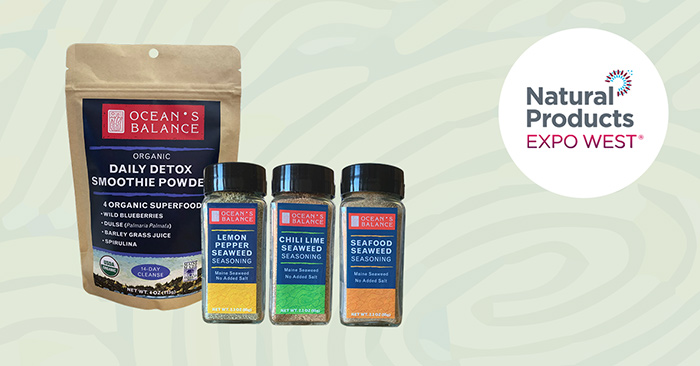
Everyday Pantry Staples Get Some Help from Kelp
In an effort to market seaweed as an approachable ingredient to a wide array of consumers, several brands have developed their own unique spins on products consumers often keep stocked in their panties.
Burlingame, California-based Ocean’s Halo (N2102, N2103) made its first major venture outside of the snack set with the launch of its seaweed broths in 2017. Now available in eight varieties – No Chicken, No Chicken Low Sodium, No Beef, Pho, Ramen, Miso, Tortilla Soup and Thai Coconut – the product features organic dried kelp. The brand also carries a line of Noodles, Bowls, Sauces and Dressings, all of which also feature dried kelp, which is imported from Korea.
Later this week, Ocean’s Halo will show off its dried seaweed snacks featuring revamped packaging that has eliminated the plastic tray, increasing shelf efficiency and lowering the brand’s carbon footprint.
The aforementioned Ocean’s Balance markets a wide range of pantry staples including pasta sauces, seasonings, seaweed flakes, whole-leaf seaweed and kelp purée. The products have enabled the brand to secure spots across on shelves in several different grocery store aisles.
“A lot of cultures eat 30% of their meals with seaweed, [but] it’s not the main thing because it’s not filling enough and there may not be enough protein alone in seaweed,” explained Lench. “So what we’ve focused on is how [to] get seaweed into everyday pantry items.”
In Anaheim, the brand will unveil its newest product innovation, Detox Smoothie Powder. The new offering combines the umami of dulse with wild blueberries, barley grass juice and spirulina and is currently available online for $19 per 4 oz. bag.
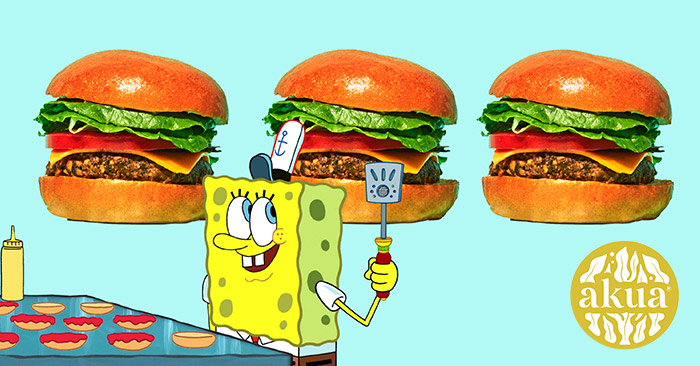
Appealing To Consumers of All Ages
Now that seaweed has begun to capture the attention of many health-conscious adults, some brands are working to reach a younger audience. Against that backdrop, a handful of seaweed-based brands will be highlighting products at Expo West that will propel the ingredient into new spaces and broaden its demographic.
Can Spongebob Squarepants help get kids excited about eating kelp? That’s the question for Akua (N2046) as it kicks off its new partnership with the animated franchise, sharing samples of its kelp patty sliders in original and BBQ flavors, which are set to launch in 4-packs later this year.
“If we can get kids eating healthy [at] a young age, then we’ve created a whole new movement,” said Akua founder and Courtney Boyd Myers. “We’re really excited about an outside-of-retail setting and working with restaurants to add kelp into kid’s menus and actually providing healthy options.”
In the snacking set, Sea Monsters, Inc. (N1535) produces an organic puff snack featuring regenerative seaweed and sorghum, a gluten-free ancient grain. According to the brand, the grain’s “superpower” is its adaptability to climate challenges such as heat and drought as it requires 30% less water than other grains and captures 25% more carbon during respiration than other grass-based crops.
Each of the brand’s four flavors– Sour Cream & Onion, Cheese Pizza, Sweet Chili and Spicy Korean BBQ – is characterized by its own unique “mischievous” undersea cartoon sure to capture the attention of children and adults alike. “We’re avid surfers, and want our kids, and all kids, to be curious about the sea and all its fascinating creatures,” explained co-founders John and Jiae Lee on the brand’s site. “Sea Monster snacks is our way […] to give back to the planet and kickstart a lifelong relationship with the sea.”
Nora Snacks (N105), which markets a line of crispy snacks featuring red seaweed imported from Korea, is set to debut its new Tempura With Sunflower and Sesame Seed Seaweed Snack. The new variety will join Nora’s existing lineup, which includes Original Crispy, Spicy Crispy, Original Tempura and Spicy Tempura flavors.
The brand was created by Charlie Vanichviroon in an effort to share the foods and snacks he grew up with in Thailand with U.S. consumers.
“Over the years the U.S. definitely became more and more diverse and, in doing so, consumers palettes became more diverse as well. There was this trend for Asian-inspired [foods products] and I wanted to share my experiences with food and snacks growing up as well,” said founder and CEO Charlie Vanichviroon.
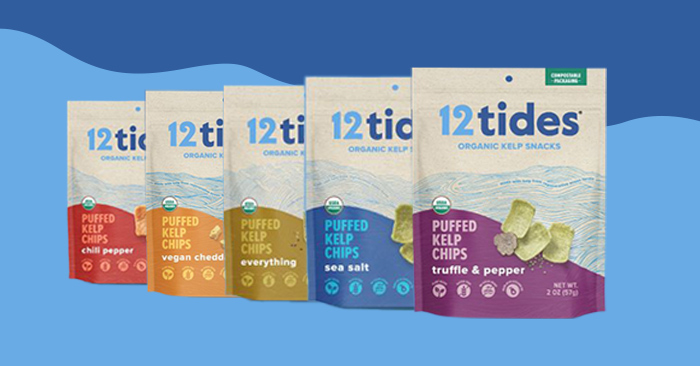
San Francisco-based 12 Tides (5491) can also be found in the snack aisle with its puffed kelp chips. Currently available in three flavors – Sea Salt, Everything and Chili Pepper – the lineup will soon expand with the addition of Truffle & Pepper and Vegan Cheddar flavors set to debut at Expo West.
Though the brand is still young (founded in 2019) and regenerative farming is still a relatively new concept in the U.S., co-founder Lindsey Palmer is confident “there’s a huge potential to scale into something big over the coming years.”


